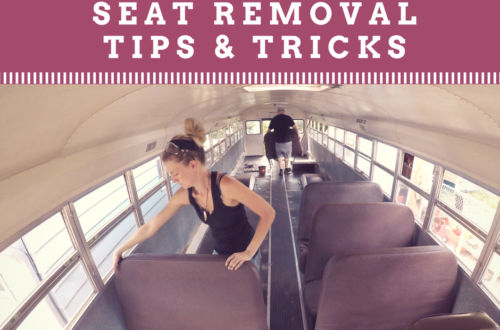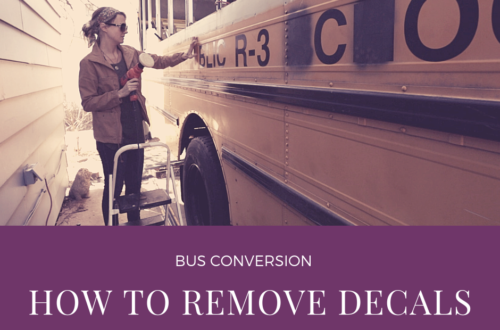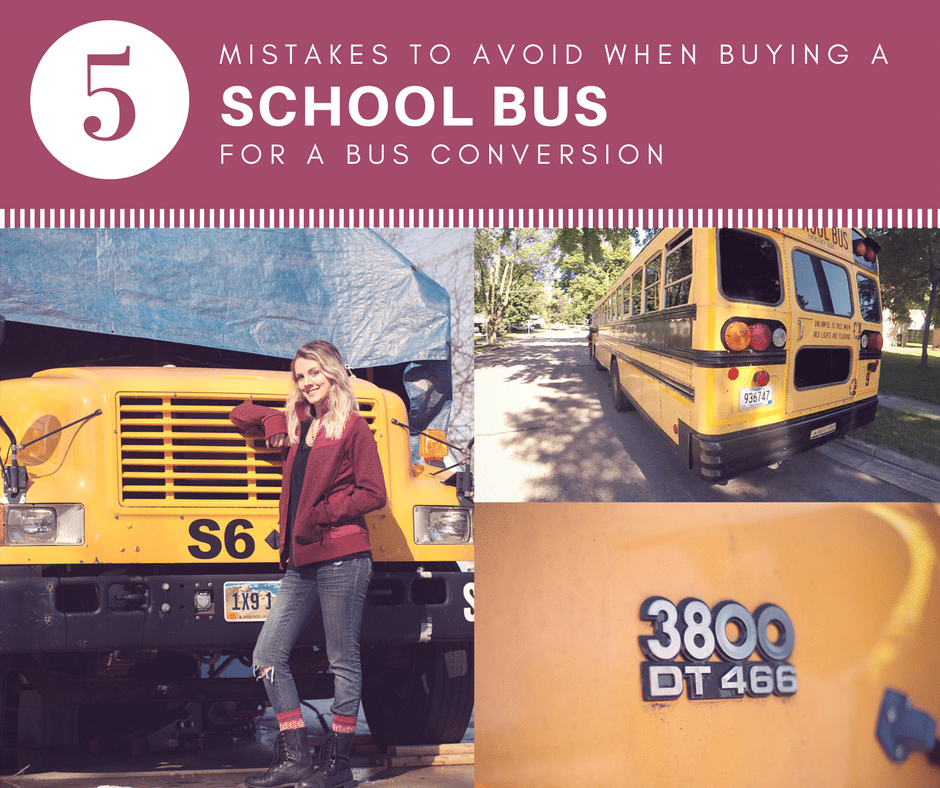
5 Mistakes to Avoid when Buying a School Bus for a Bus Conversion
Are you considering buying a school bus to convert? When we decided to buy our first bus, we were way too excited and overlooked parts of the bus that were concerning, to say the least. We came up with a list of 5 mistakes that we made in the process of buying our first bus.
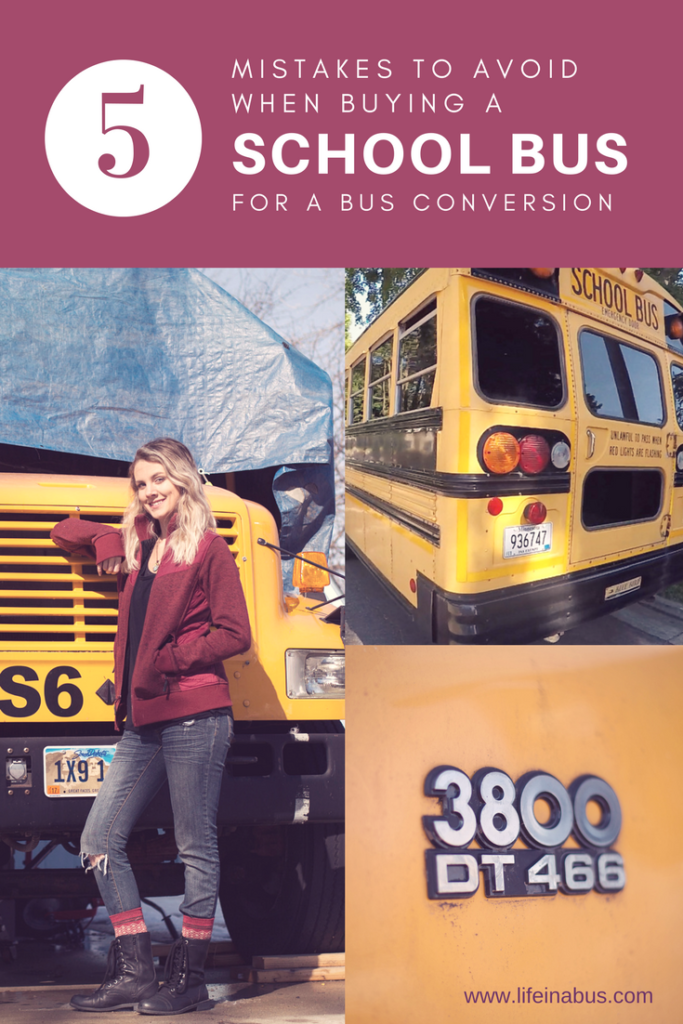
The first bus that we bought ended up having so many problems that we had to get rid of it altogether and completely start over. It was horrible at the time but a lot of valuable lessons were learned from that situation!
That being said, we decided to share our mistakes so you don’t have to learn the hard way. Here are 5 important details to look out for when buying a bus!
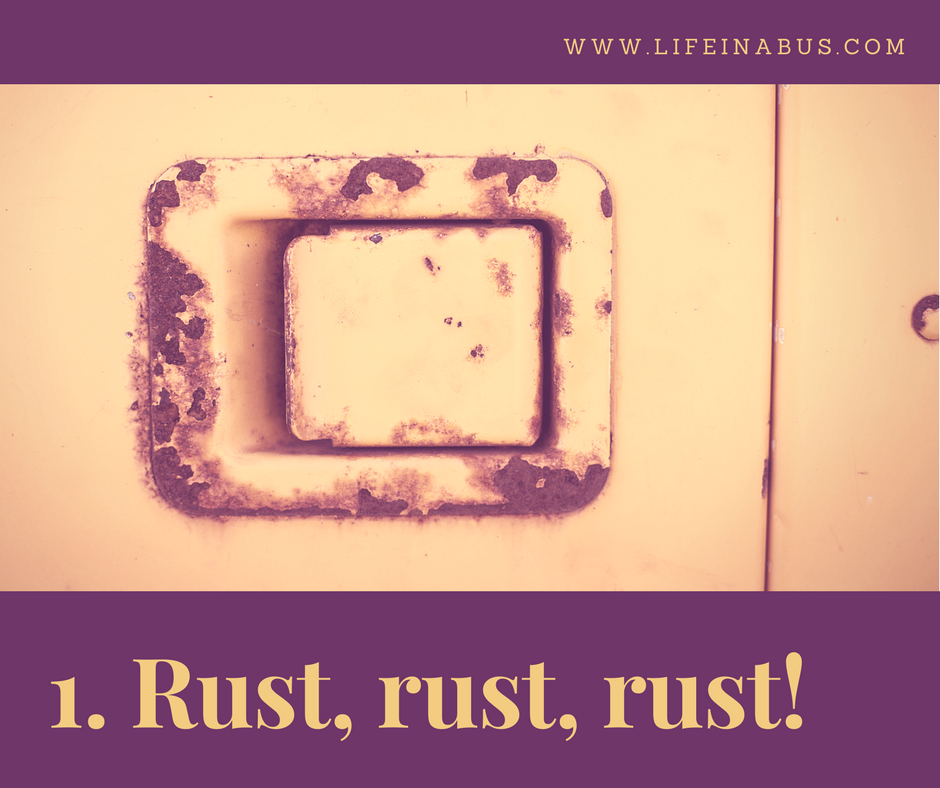
1. Rust, rust, rust!
Look out for rust! The last thing you want to do is build on a pile of rust. The first mistake we made when buying our first bus was overlooking the rust problem.
We are from the northern part of the U.S. where we get a ton of snow in the winter. This leads to heavy salting of the roads, which then causes vehicles to rust. If you can, try to look for a bus further south where the winters aren’t so harsh.
Another thing to note is that rust spreads. No matter what, most retired buses you will find will likely have rust to some degree. Just make sure that it’s minimal and easy to remove as much of it as possible.
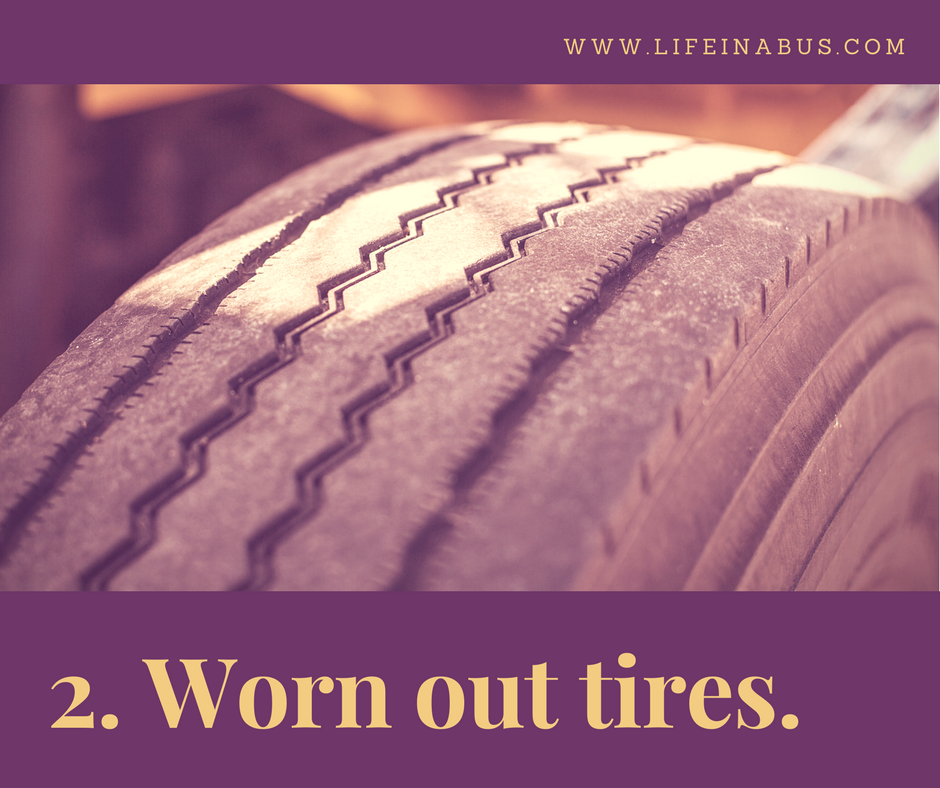
2. Worn out tires.
Often times when a school bus is retired from a school district, the tires are starting to get old and worn out. Make sure there’s a good amount of tread left. I know that tires don’t seem like something that would be a deal breaker, but most busses are equipped with six tires. Therefore, they add up quickly and should still be a factor.
For a quality set of six tires, it can get up into the thousands in replacement costs. This is especially important if you plan on traveling frequently with your bus. On the flip side, if the tires are in poor condition, you can use them as leverage in negotiating a lower price given everything else on the bus is sound.

3. Fluid leaks.
Make sure to look for any signs that there may be leaks. One way to do this is to look underneath the bus to see if there are any spots where it’s parked. Check the hoses for cracks, oil, or other miscellaneous fluids. If you see any signs of leakage at all, pass on that bus.
If you’re not knowledgeable about the mechanical aspects of a school bus or engines in general, don’t waste your time or money on a bus that might have serious problems. Fixing these issues can get extremely expensive, and that money can be better put to use for your bus conversion expenses.

4. Battery Condition.
Make sure to take a good look at the battery. Check it for corrosion or any indication of leakage, and make sure that the bottom of the battery compartment isn’t corroded out. Also, try to figure out if and when it’s been replaced and how old it is.
You’ll want to make sure it’s in good working order, particularly if you will be traveling in colder climates. The last thing you want is for your bus not to start because of the battery. Additionally, school bus batteries can also be pretty steep in cost so it would be best to start out with one that’s in good shape.

5. Sketchy salesmen.
We bought our first bus from a guy in Iowa who had bought the bus from a school district in Minnesota, or so he said. The bus was fairly old and there was no real timeline or history for us to understand about it. We knew at the time it seemed a little off.
We ended up jumping into it anyway without taking the proper steps to make sure we were getting exactly what we were looking for because we were blinded by excitement. The title of the bus was messy, there was a whiteout issue that we had to address with the state registration office, and it was overall a sketchy situation.
These were things that we definitely should have been more cautious about. We bought our second bus through GovDeals. We picked this bus up directly from a school district and got a full run-down from the mechanic that had been servicing the bus for over 20 years. The school bought it brand new and serviced it regularly, as they took the safety of their students very seriously.
So with all of this in mind, we would recommend looking for busses that have been retired from public school districts and were well taken care of while they were in use. If you’re not sure where to look, we wrote a great post about where to buy a bus.
Disclaimer: We are definitely no experts! These are simply the five things that we found to be most important.
If there’s anything here that you didn’t see that you think people should be aware of when inspecting and purchasing a bus, please comment below or let us know! We love to hear new insights and perspectives!


